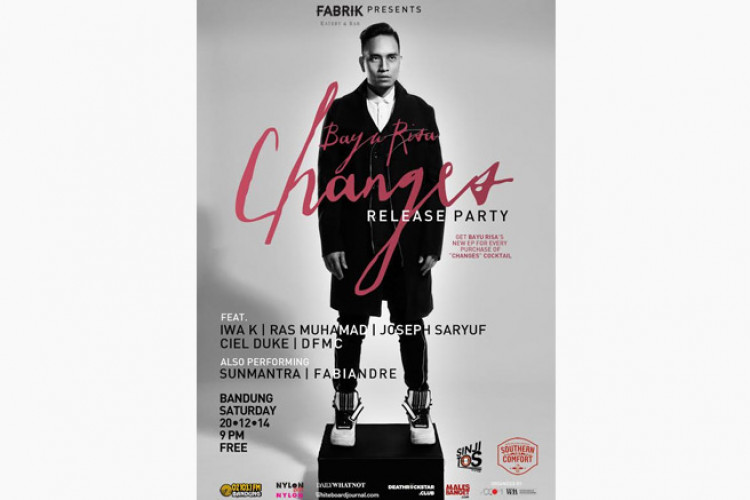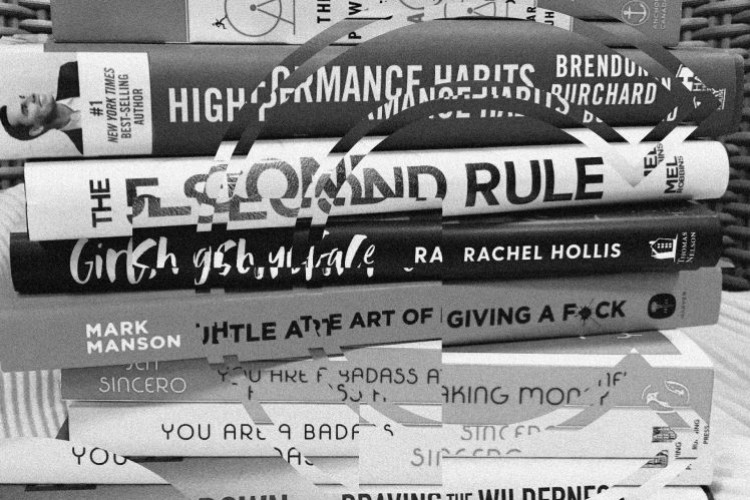Strictly Music with Dipha Barus
Ken Jenie (K) talks to musician Dipha Barus (D)
by Ken Jenie
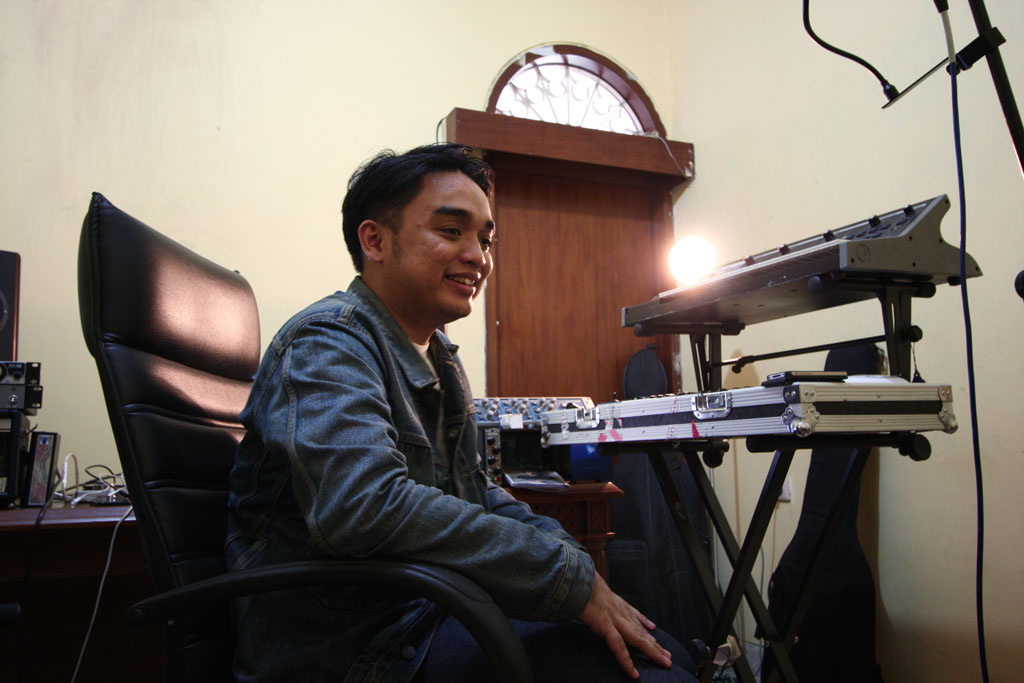
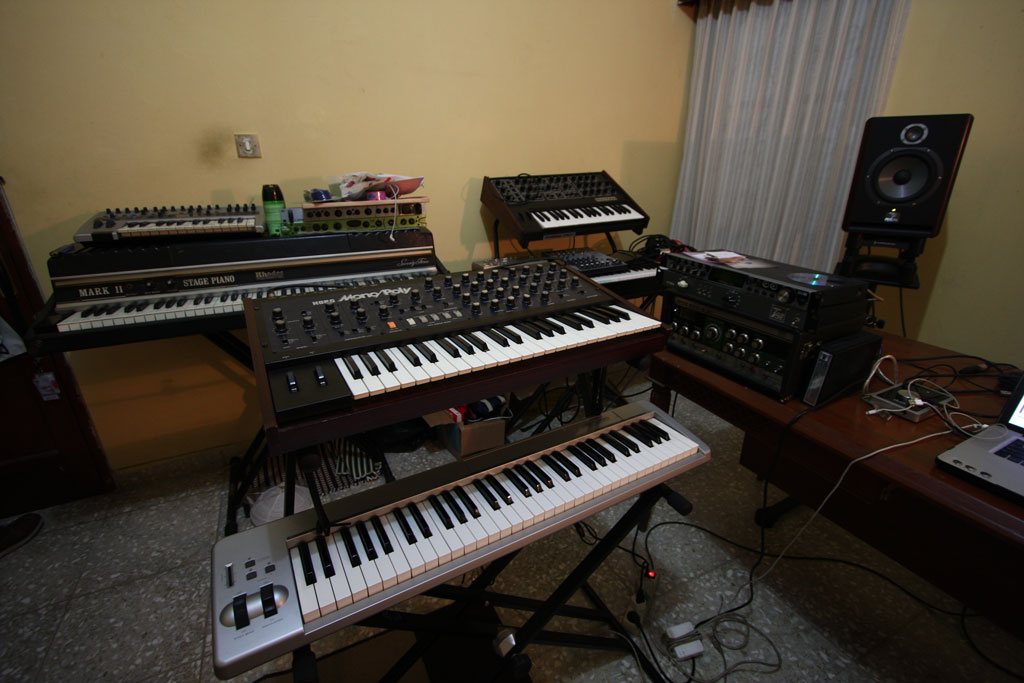

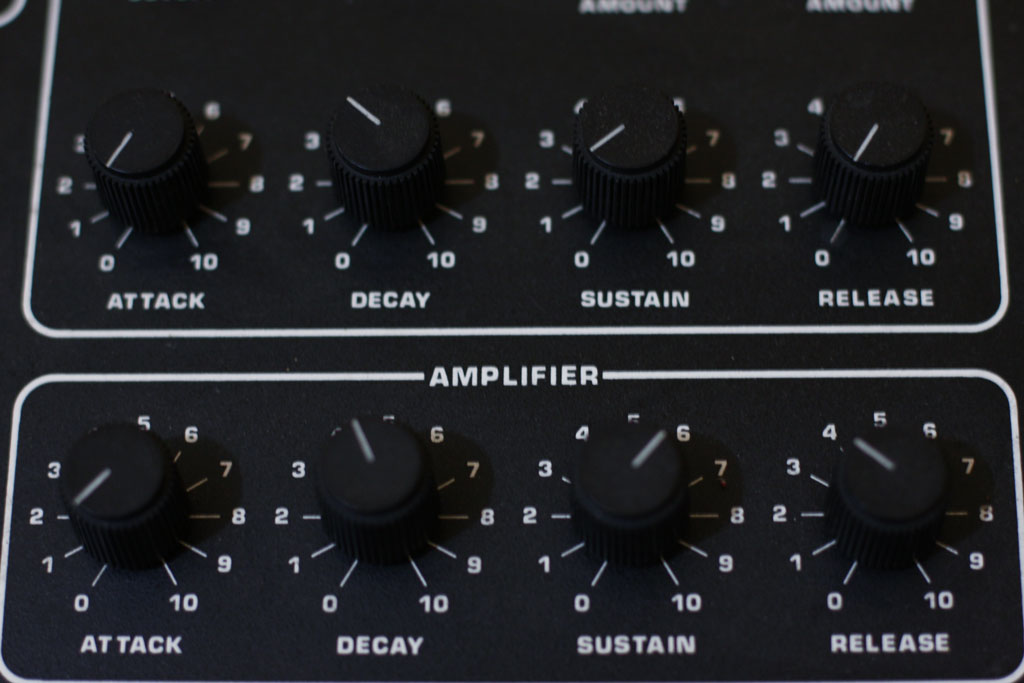
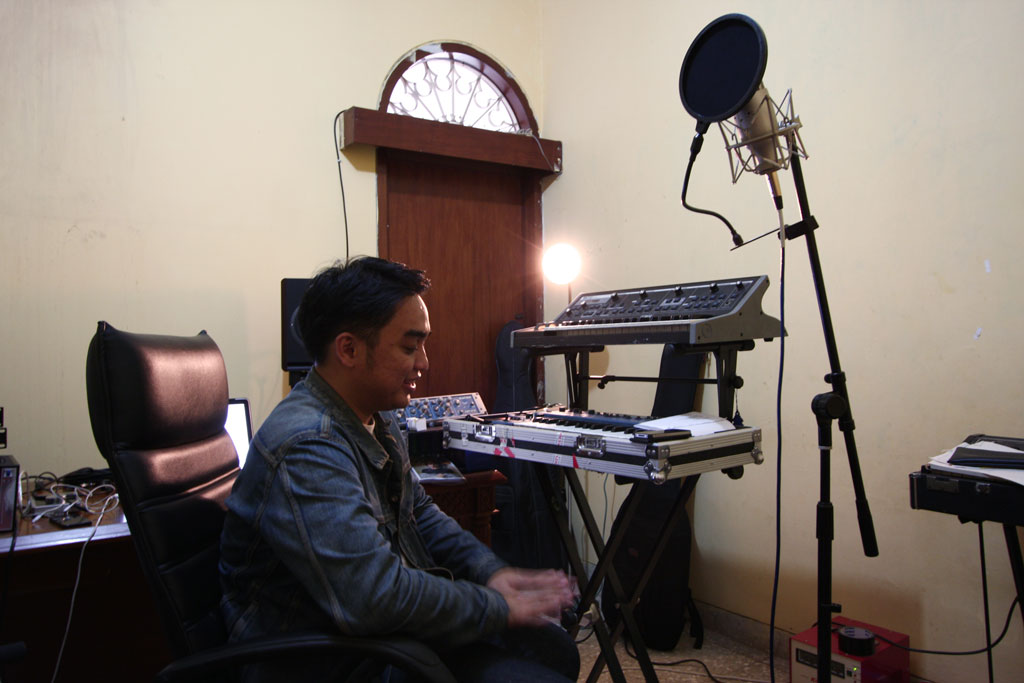
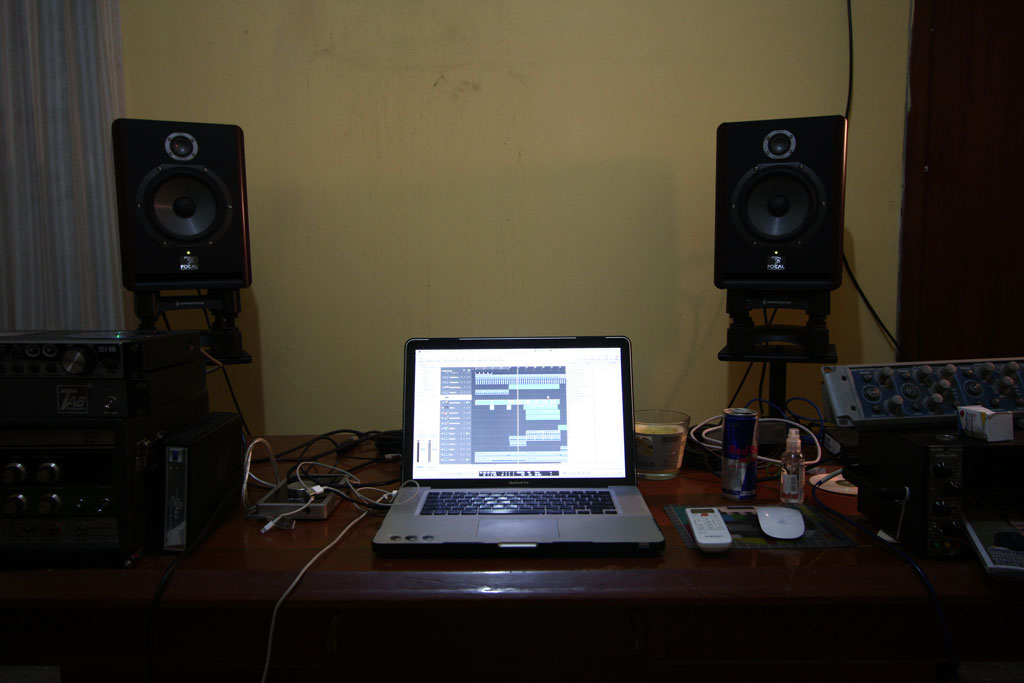


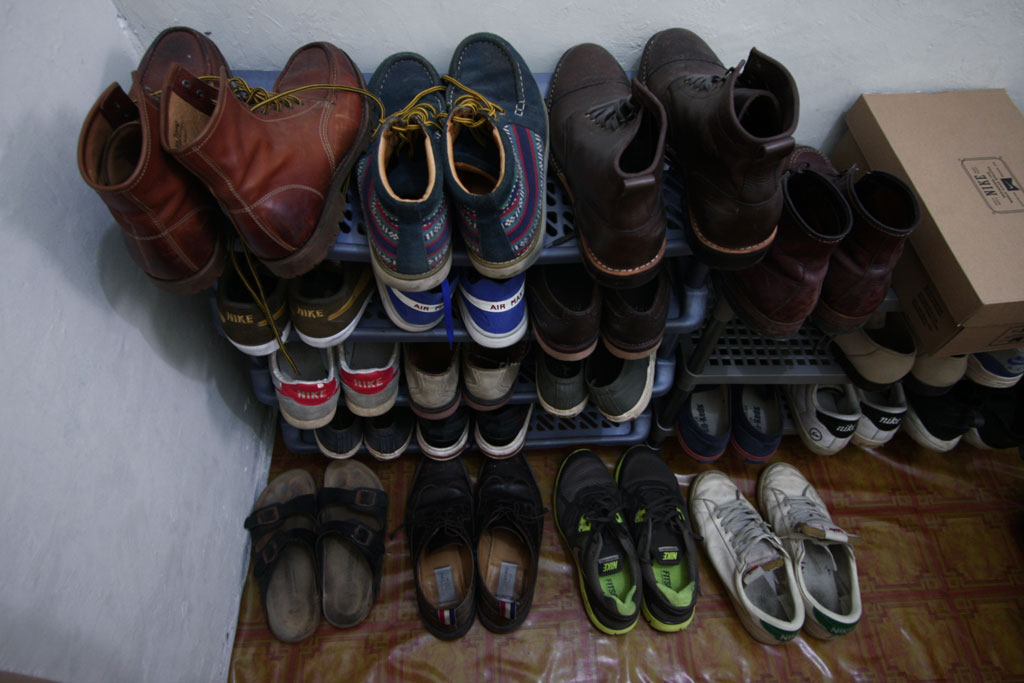


K
A sort of general question, can you recall when you first was exposed to music? Your earliest recollection?
D
Actually, one of my fathers’ wishes is to have his children be able to play music. It was to the point where he played music in the delivery room when I was born. He wanted it to be a family tradition, but forgot to do it when my brother was born (laughs). So yeah, when I was born there was a cassette playing in the background.
K
Was your father a musician?
D
No, he wasn’t a musician. He was a big fan of music though, and a collector of cassettes and vinyl records, more towards cassette tho.
K
I’m assuming that growing up you were very much exposed to music then?
D
Absolutely.
K
What sort of music did you commonly hear in your household?
D
The first song that I was exposed to, the one playing in the background when I was born, and I guess this is a little cheesy, was Louis Armstrong’s “What a Wonderful World”. In our house, I was exposed to the music my father listened to – The Beach Boys, Beatles, Pink Floyd, Deep Purple, Led Zeppelin – stuff like that.
K
How important was music for you growing up?
D
I don’t know how to quite explain this, but growing up there have been events that were tough to deal with, and I feel that I managed to deal with those problems thanks to music. The activities that had to do with music kept me in a positive track. You know how it is when you are young.
K
A lot of mucking around?
D
Yeah, man. I even got into drugs at some point and what really got me out of it was music.
K
So what were the earliest musical activities that you did?
D
My first real musical activity was being a session player. When I was young I played the bass for a café-band.
K
How young were you when you were a session player?
D
I was in 4th or 5th grade.
K
You were a session player in fifth grade!? That’s pretty amazing! Did you get formal training or…?
D
There was a time when I took music lessons in Farabi, that’s Indra Lesmana’s school… but that lasted for about a month (laughs). When I was in second grade I also took lessons in classical guitar at Yamaha school. My father taught me the basics of piano when I was young as well.
K
Would it be fair to say that you are a formally trained musician?
D
Well, actually I am more of an autodidact. When I went to music school my grades were horrible (laughs)! Schools are quite heavy in theory, and at the time I felt like “why do I need to learn these long-winded theories and processes when I just want to play?” I already know the music I wanted to perform and all of these formalities seemed to make it more complicated than it should be.
K
Now that you are older, how important do you think theory is to music?
D
Theory is very important to your musical development. They are a reference point that you can go to when you need to translate your ideas. For example, I have this orchestra project I am working on and as a person that learned notation by himself I keep hitting these brick walls when I want to write down my ideas. I really regret not studying it.
K
I suppose we can consider musical theory and notation as a language to communicate music?
D
Yes. Now it’s a bit easier because of the softwares.
K
Okay so the first time you performed was as a session player?
D
Actually, the first time I was paid to perform was in 4th grade at some Batak guy’s birthday party for 15,000 rupiah.
K
That’s a bit random. How did that happen?
D
It was my friend’s father. He saw me perform a jazz number at a school Christmas event and asked me how many songs did I know. I told him I can do 20 songs and he offered me 15,000 to perform 20 songs at his birthday (laughs). That was my first gig.
K
Did you see that music will be what you will be concentrating on from a young age?
D
Not at all, it was just one of the things that I thought I would do. It was something I did but not what I thought I would be doing. When I was young I wanted to be a ninja or an FBI agent that can play music (laughs).
K
How did you start working professionally in music?
D
The first time that I worked professionally in music was as a DJ in Malaysia. I was about to graduate from college in Malaysia, and during the final semesters I was a semi-resident DJ at a club called Zouk. That was the first time that I experienced music as a job.
K
Did you have a ‘moment’ where you sort of realized that music was what you will be doing?
D
I did. When I graduated college I worked as a graphic designer at TBWA, a Malaysian advertising agency. Working in that environment I realized that I was happier when I DJ’ed and made music. With that realization I decided to leave the advertising world and pursued music as a career.
K
What did you end up doing when you quit?
D
The first two months after I left my graphic design job I was a DJ full time. My father passed away during this time and I decided to come back to Indonesia because I had to be the breadwinner of my family. My mother and brother wasn’t working at the time.
K
What did you first do when you got to Jakarta?
D
I was rejected from practically everyplace that I applied to as a resident DJ.
K
When was this?
D
This was about 2007/2008. Most places rejected me saying that the music that I play woldn’t please a crowd, it is too ‘idealist’. It made me reconsider my career as a DJ. I did still want to do something in music, so I did all jobs I can take. I worked in Aksara’s music shop while sleeping in various friends’ houses; I was making about 750,000 rupiah a month. Luckily in a couple of months I was promoted to assistant buyer.
During this time I was also invited to be part of Agrikulture.
K
How did you end up joining them as a permanent member?
D
I performed with Anton [Wirjono] in Malaysia and he told me that if I was in Indonesia I should contact him to jam with Agrikulture. When I was back in Jakarta I called him and asked whether they still needed an additional player and he said “yeah, go ahead” so there I was.
My passion was still DJ-ing, though. When Agrikulture performed and Anton was DJ-ing in my mind I was like “Man, I should be DJ-ing up there as well”. So I was an additional player, and sometimes they would ask me to DJ. I made my own event called Mish Mash where I would play commercial music that still pertained to my taste and shared it with the crowd.
I also made playlists for restaurants. I would go to these different establishments and offer them our services as playlist makers.
K
You really hustled when you first returned to Jakarta.
D
I had to. I already made a commitment to making a living off music so I tried everything that had to do with music. I couldn’t make a living strictly from DJ-ing so I had to try different jobs.
K
Did all of the work you did pan out?
D
Yes. I felt successful at what I did when I was able to support myself and my family. When I was able to say “mom, let’s find a house we can rent” I felt that I could truly live off music. It was really difficult after my father passed away because we really had to start from zero. Looking back, the legacy my father left me with is an understanding of how to survive in Jakarta – that is a very valuable gift.
K
And at this time you were still doing everything from creating playlists to additional player?
D
Around late 2010 – early 2011 I was invited to be an official member of Agrikulture as a producer and songwriter. I also started working for Potatohead at this time as well.
K
As a music director?
D
Yes. I was first a DJ at Potatohead Jakarta and then they offered me to be their music director as they were going to expand and open Potatohead Bali. They offered me the position and I accepted and here I am.
K
Do you have any personal projects?
D
My real passion lies in making music, and my personal project right now is producing music for artists and bands. I have been making music since I was young, I even made a song that a band bought when I was in junior high school.
When I reached that point where I wasn’t struggling anymore, I started doing music production for different artists.
When I left the advertising/graphic designer job I really looked up to people such as Paul Epworth, Boys Noise, Dan Auberbach, Brian Eno, – those are the people I wanted to be. I don’t just want to be a DJ, I also want to become a producer. Paul Epworth is a DJ and he also produces for Adele, the Rapture. Danger Mouse does the same thing, he is a DJ and produces. That is what I want to be.
K
What have you been working on as a producer?
D
I am currently working with a singer and a band. For the most part I work per-project.
K
When did you start producing?
D
Pretty recently, I started producing about 2011.
K
Looking at your work, it seems like you work heavily with software and hardware. Did you get formal training?
D
I learned most of it from Youtube. Adit, Agrikulture’s drummer, taught me the basics and I learned the rest from Youtube. There is this username, SFLogicNinja, I learned everything from him. I basically learned most production techniques from Youtube and online forums.
K
Do you make your own music?
D
Yes. I have only done a couple of remixes under my name, but I will have an EP of original music out this September. It will be a dance-oriented album, something for the DJs to spin.
K
It seems that is really the beginning for your career as a musician.
D
It does feel like it. The way I see it, I could have started this career when I was younger but back then my life was a mess so I was only able to get things started the past two years.
Things has been really good since, this is what I want to do until I get old.
K
Going back to your college years, how did you end up taking graphic design for your major?
D
When I was young I loved making and playing music, but I did not want to become a musician. My father explained to me that music shouldn’t be my main source of income, I should get a steady job and do music on the side. You know how parents are. He told me I should do what ever I like besides music and I chose graphic design.
So I went to school for graphic design for four years and worked in a firm, and I really did not enjoy it. I was really robotic, I would hand in my assignments on time and get good grades but I did not enjoy a second of it.
K
How long did you work as a graphic designer?
D
For a year.
K
And did you ever do anything related to graphic design since?
D
Not at all. As soon as I quit I deleted Adobe Illustrator from my computer (laughs). Seriously though, I love looking at people’s graphic work, but that is the extent of my relationship with graphic design – as someone who appreciates it.
K
As someone who is in music and has an understanding of visuals, what is the relationship between the two?
D
For me personally, I need to see before being able to create music. I look for visuals to inspire me to create music.
K
What do you get from the images you choose?
D
The atmosphere. Whether photography, or illustration, or whatever… before I open Logic, I open design boom. I look at the images and its atmosphere inspires me to work on the music.
K
Would you say that music translates a certain mood?
D
Yes, for me it is like that. A mood derived from something that I see.
K
How important is the visual/image accompaniment to music and musicians?
D
I think visuals add character so the music will be bolder in people’s eyes. Let’s say Dead Kennedy’s or Black Flag, the imagery that they use gives extra emphasis to the music.
Scenes such as black metal, they are really visually oriented. It isn’t only about the music but it is also about the imagery.
K
You seem to have quite the collection of instruments, how did you accumulate all of these instruments?
D
I enjoy the analogue process, a non-instant process. The character of sound from these instruments stands out, and with so many musicians using software to create music, this sound character set them apart. I want to try to represent the analogue sound, these old instruments, in music that is contemporary. How to make music that is relevant today using old instruments. I ended up with so many instruments because all of their character are so different.
K
A sort of basic question, but an important one nonetheless, as a DJ can you explain to me what your role is?
D
My understanding of DJing is a person who can create a certain atmosphere from his musical knowledge. It isn’t simply a selector who plays the flavor of the day for a crowd. It is a person who uses his experience and interpretation of music, in the time he is performing, to create and change the atmosphere in which the audience can relate to. A successful DJ is not a “number 1 DJ” that goes on tour, that isn’t success, anybody can do that. A successful DJ is one that can make a negative person positive. Getting a simple thank you is already a great success for me.
K
What always intrigued me is how a DJ becomes so widely known, can you tell me the process?
D
The world has changed quite a bit, and a DJ isn’t simply known as somebody who mixes music anymore. Now many DJs are known for the music they make, and that is what really launches them into the public sphere.
To be honest, that isn’t what I am looking for. It’s a personal exploration, I want to know how far I can take this music thing. I don’t really care about getting into the charts. I want to know what sort of personal impact I can make with music.
K
You have performed everywhere from Indonesia, Singapore, Thailand to the US. How does your audience react in these different places? Does music create a common response or do people react differently in different places?
D
That’s an interesting question. A complaint/question I often get from people is “why is your set different here? Why is your set different there?”. As you perform for different crowds, I believe you should have music that both the people and you can relate to. This music bridges the gap so you can find a commonality. Let’s say you are performing in Kota (central Jakarta), I need to understand their musical language. They are not going to listen to Can, no Krautrock, so I need to choose music that we can find common ground in.
K
As a performer and a listener, what is your opinion on this digital era?
D
I really love this era because it is easier for us to distribute our music. Physical releases have their own draw; I am very visual, and I enjoy listening while looking through the artwork; but it is the digital information era and it is definitely positive.
There is a sort of negative side that I see from all this information available though. I feel that many are quick to become judgmental in their listening to music. Because it is so easy and quick to find references, one quickly point a finger and say “this music sound like its from this era and that artist influenced it and so on” when, quite frankly, they never experienced any of those eras. This is the negative aspect of the digital era: because there is a lot of information people can access people are quick to formulate a perception because they believe they know a lot.
K
A sort of basic question, who are your influences?
D
From Indonesia, my cousin David Tarigan is a huge influence. My father, Fariz RM, Indra Lesmana… there is a whole lot from Indonesia (laughs).
K
You have a quite a collection of Indonesian music, how did you get into it?
D
Yes, I collect mostly music from the 70s. It’s funny, I actually was introduced to Indonesian music during my college years by Youtube, there was this Dutch guy who used to upload Indonesian music on it. David [Tarigan] used to say how good Indonesian music was, but I didn’t believe him until I saw it on Youtube (laughs). There’s everything from Garage Rock, Pop, to Psychedelic. There is a whole lot of good music out there.
K
What is Indonesian music like right now? Is it lively? Or perhaps stagnant?
D
I wouldn’t say it is stagnant, but there will be an era that is better than this one. It is a process, I believe we are at this transitional phase into a great era of music.
K
Do you think Indonesia’s musical character can achieve the international success that other countries have experienced?
D
We definitely have character and that is Melayu music. As western as we are trying to be with music, there is this character that stands out – whether in the rhythm or the chord progressions there are influences that, whether we realize it or not, we can find in our music. That is our music.










